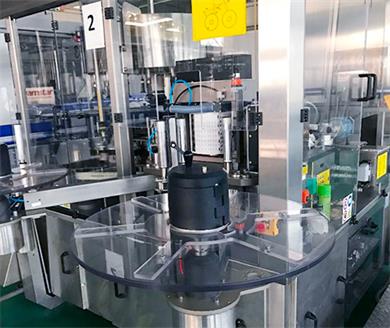Why RFID is a ‘must-have’ technology, regardless of sector
The benefits of Radio Frequency Identification (RFID) technology are far-reaching, pertinent to many industries and for a variety of applications. One such gain is quick and efficient data capturing for intelligent asset tracking and management, explains Marc van der Poll, network architect at Datacentrix, a high performing and secure ICT solutions provider.
“Without RFID, an automotive business with a warehouse storing R1 billion worth of goods, for example, would see an average annual stock loss of around R200,000. The business may conduct an asset inventory once a year, which would take the full staff complement an entire week to complete – technically unproductive time. For the rest of the year, the organisation relies on its accounting system to monitor what should be in the warehouse. However, this would most likely be inaccurate, as it would not detail the actual stock holding.”
Van der Poll clarifies that traditionally, items within a warehouse are barcoded. “Asset inventories can be a time-consuming process as physically finding the barcode on each individual item can be slow going. With RFID, because it does not call for human intervention, stocktaking can be completed faster and more efficiently every week, ensuring that any issues are identified and dealt with. This type of visibility is extremely valuable.
“RFID does not require line-of-sight, like bar code hand-held scanners, which are tricky to use as the operator needs to locate the bar code on the items. Instead, RFID technology allows you to count assets within seconds. Items are labelled using smart RFID tags, and either a hand-held scanner, or an automated fixed-reader broadcasting a radio frequency every few seconds is used to ‘power’ these tags – meaning that they send out their information for capturing. This data is then fed into a back-end application.
“Organisations could apply the same technique using a drone flying on a pre-determined path within a warehouse, quickly and easily checking and recording stock within a few hours.”
RFID also offers advantages to the retail industry, he adds. “The technology can be used to send auto alerts of clothing on the floor, for instance, helping to track whether items in certain sizes need to be replenished from the stock room. It also alleviates the need to keep high levels of stock in-branch, as processes can be set up where oversupplies are moved between different locations as needed.”
This type of scenario can be applied within the medical field, such as for pharmacies and hospitals, where medicine expiry dates must be recorded and adhered to, and stock levels closely controlled.
“From a field service management perspective, RFID offers an excellent solution with regards to in-the-field vehicles for the tracking of high-value tools and components – and not just limited to service and technical support related businesses.
“Emergency medical services (EMS) vehicles – such as ambulances, fire trucks, advanced responders and more – can harness RFID technology to keep track of expensive equipment. For example, a defibrillator that goes missing could cost the organisation in the region of R400,000. By tracking inventory items as they leave the vehicle, they are far less likely to be left on-scene, saving on wasted time linked to repeat site visits. Using washable RFIDs, gear and other clothing can also be tracked.
“It also offers the ideal solution for weapon control, within the military as well as private security industries. RFID technology can not only be built into the weapons themselves, but also into weapon cabinets, to keep track of who is taking which firearms, and whether they have the requisite upfront approvals.”
Another important use for RFID is for document management – many organisations still use paper folders and files, as it is necessary to retain physical copies of documents for a certain time period. “Using RFID, it becomes much easier to track the location of documents or folders, providing excellent levels of security and control for printed material, as well as better compliance and risk management. This is applicable to paper-based materials such as contracts, books, manuscripts, patient records, dockets and more,” Van der Poll adds.
It is clear that RFID can provide real business benefits to many industries, helping to boost productivity, providing reliable information, and also improving visibility and traceability of assets. “This access to more accurate, timely data, and the insights it provides, is a powerful tool for any business,” he concludes.
- Impinj unlocks new IoT device opportunities with launch advanced RAIN RFID chips
- RFID is Improving the World of Healthcare
- Confidex Ferrowave Micro Delivers On-Metal RFID Tracking for Specialty Retail
- Paragon ID announces the acquisition of Security Label, European leader and one of the world's bigge















